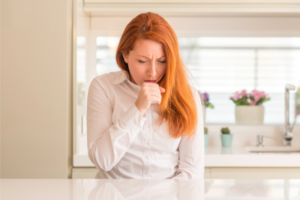If you find yourself tired and unable to focus during the day—even after a full night’s sleep—you could be dealing with more than simple fatigue. The truth is, according to sleep apnea doctors, apnea that occurs during sleep and insomnia often go hand-in-hand. Let’s look at understanding the complex link between these two sleep disorders.
What is Sleep Apnea?
Sleep apnea is a serious condition in which your breathing stops and starts repeatedly during sleep. These pauses can last from a few seconds to a minute or longer and typically occur dozens to hundreds of times per night.
Types of Sleep Apnea:
- Obstructive sleep apnea (OSA) is the most common type. It occurs when the muscles in the back of the throat relax too much, causing the airway to collapse and interrupt breathing. Imagine trying to drink through a floppy straw—that’s similar to what happens with obstructive sleep apnea.
- Central Sleep Apnea: With CSA, the brain doesn’t send the right signals to the muscles that control your breathing. It’s like your brain temporarily “forgets” to tell your body to breathe.
- Mixed Sleep Apnea: MSA is a combination of central and obstructive sleep apnea. This means you experience both airway blockages and lapses in your brain’s breathing signals.
Common symptoms of sleep apnea include loud snoring, gasping for air, morning headaches, daytime sleepiness, irritability, and difficulty concentrating. Risk factors include obesity, large neck circumference, narrow airways, family history, smoking, and alcohol use.
Sleep apnea isn’t just about noisy breathing. Each time your breathing stops, your oxygen levels drop. This abrupt drop acts as an alarm signal to your brain, forcing a mini-awakening to restart your breathing. These frequent interruptions, even if you don’t fully wake up, create a ripple effect of problems, such as the following:
- Strained Heart: Dips in oxygen stress the heart, increasing the risk of high blood pressure, heart disease, and stroke.
- Daytime Fog: Lack of deep, restorative sleep leaves you tired, unfocused, and less productive.
- Mood Swings: Chronic sleep deprivation makes irritability and moodiness common companions.
It’s important to see a sleep apnea doctor for proper treatment to improve your sleep quality and overall well-being.
What is Insomnia?
Insomnia refers to the ongoing difficulty in falling asleep, staying asleep, or waking up too early with the inability to fall back asleep. It can severely impact your quality of life.
Types of Insomnia:
- Acute: Brief episodes related to stress or life changes.
- Chronic: Trouble sleeping at least three times a week for three months or more.
- Comorbid: Insomnia occurring in the presence of another medical or mental health condition.
Common symptoms include difficulty falling or staying asleep, waking up too early, feeling unrested despite sleep, fatigue, and mood disturbances. Risk factors include stress, irregular sleep schedules, anxiety, depression, medical conditions, and certain medications.
The Relationship Between Sleep Apnea and Insomnia
Research shows a strong link between sleep apnea and insomnia. Studies suggest that people with sleep apnea are far more likely to have insomnia and vice versa. This suggests a complex, bidirectional relationship:
- Sleep Apnea Worsening Insomnia: The constant disruptions to your breathing caused by sleep apnea can lead to frequent awakenings, making it incredibly difficult to maintain quality sleep.
- Insomnia Worsening Sleep Apnea: When you can’t fall asleep or stay asleep, physiological stress occurs, which further worsens sleep apnea symptoms.
Shared Risk Factors
Certain shared risk factors and comorbid conditions can increase the likelihood of developing both sleep apnea and insomnia. These include:
- Asthma and Other Respiratory Conditions: These conditions, expertly treated at Kamelhar Pulmonary, can create both sleep disruptions and breathing difficulties.
- Depression and Anxiety: These mental health issues can significantly impact sleep patterns.
- Age and Gender: The risk of both disorders increases with age, with men being more prone to sleep apnea and women more prone to insomnia.
What’s the Link Between Sleep Apnea and Insomnia
Impact of Sleep Fragmentation and Nocturnal Awakenings
- Sleep Apnea: Sleep apnea isn’t merely about snoring or feeling tired. Each time breathing stops, your body jolts partially awake to restart it. You might not even fully wake up, but these frequent interruptions shred your sleep into small, unsatisfying pieces.
- The Illusion of Sleep: Even if you spend 8 hours in bed, you may not truly get the deep, restorative sleep needed to feel refreshed. This constant deprivation creates a feeling similar to chronic insomnia.
Disrupted Sleep Architecture and Non-Restorative Sleep
- Your Sleep’s Natural Rhythm: Our brains cycle through sleep stages for physical and mental repair. Sleep apnea disrupts this, like constantly hitting “stop” on a music track before it finishes.
- Missing Out on the Essentials: Deep sleep is crucial for bodily restoration, while REM sleep fuels focus and memory. Without enough of these, you feel exhausted, mentally foggy, and irritable—just like with insomnia.
Physiological and Psychological Factors Contributing to Both Conditions
- Stress Overload: Both sleep apnea and insomnia activate your body’s “fight-or-flight” stress response. This flood of hormones sabotages your sleep, perpetuating these conditions.
- The Worry Cycle: When sleep feels impossible, anxiety takes over. The very fear of not being able to sleep makes it even harder, worsening both sleep apnea and insomnia.
- The Shared Roots: Often, the same underlying factors contribute to both problems. Conditions like obesity, depression, and respiratory issues can play a role in developing both sleep apnea and insomnia
Clinical Implications and Diagnostic Challenges
Many core symptoms, like overwhelming daytime fatigue, poor concentration, and even irritability, can stem from either condition. Simply asking about sleep problems isn’t enough to clarify the source.
This is why a comprehensive sleep evaluation is important. It may involve tools like:
- Detailed Sleep History: Your doctor will ask about your sleep patterns, daytime symptoms, medical conditions, and any medications you use. These can provide clues to potential co-existing problems.
- Sleep Study: This could be an overnight study in a lab (polysomnography) or a home sleep test. They directly measure your breathing patterns, oxygen levels, and other sleep-related data.
- Specialized Questionnaires: These evaluate your insomnia symptoms, daytime sleepiness, and the likelihood of sleep apnea.
Misdiagnosis or treating only one condition when both are present can lead to a frustrating lack of improvement. A thorough evaluation by a sleep apnea doctor is vital for creating a treatment plan that truly addresses the root of your sleep problems. Only then can you start working towards the restorative, restful nights you deserve.
Treatment Approaches
The good news is, both sleep apnea and insomnia often respond well to treatment. However, finding the right solution requires understanding the root causes. Here’s where tailored approaches make a difference:
Sleep Apnea Treatments
- CPAP Therapy: This remains the gold standard for moderate to severe sleep apnea. It’s incredibly effective at keeping your airway open, reducing the breathing pauses that disrupt your sleep.
- Oral Appliances: These custom-made mouthguards can be a good option for mild to moderate sleep apnea, or for those who can’t tolerate CPAP. They work by repositioning your jaw to improve airflow.
Insomnia Treatments
- CBT-I: This type of therapy focuses on changing thoughts and behaviors that sabotage your sleep. It is a successful treatment for insomnia, even when caused by other health issues.
- Medications: While best for short-term use, sleep medications might be prescribed temporarily to help you re-establish a sleep routine, especially when severe insomnia is present.
How a Sleep Apnea Doctor Treats Both Conditions
When dealing with both sleep apnea and insomnia, a combination of therapies is often the best path. Treating sleep apnea with CPAP can significantly improve your sleep quality, but it may not fully erase insomnia symptoms. This is where CBT-I can be a powerful addition, helping you address the remaining sleeplessness and break the cycle of anxiety around sleep.
Simple yet powerful, creating healthy sleep habits benefits everyone. Regular sleep schedules, a calming bedtime routine, stress management techniques, and weight loss (if needed) boost your overall sleep health and support other treatment methods.
Key Takeaways
Sleep apnea and insomnia have a complex, intertwined relationship, often making it difficult to pinpoint the source of your sleep troubles. Both conditions significantly impact your waking life, affecting your energy levels, mood, and overall well-being. Seeking a proper diagnosis and pursuing targeted treatments is crucial for breaking the cycle of sleep deprivation. Personalized treatment strategies can offer significant relief, helping you restore healthy sleep patterns.
Don’t underestimate the toll of disrupted sleep. If you suspect sleep apnea, insomnia, or both, let the sleep apnea doctors at Kamelhar-Teller Pulmonary help. We’ll work diligently to understand your sleep concerns and create a personalized path towards healthier, more restful nights.
Call Kamelhar-Teller Pulmonary today to reclaim the sleep you deserve!



